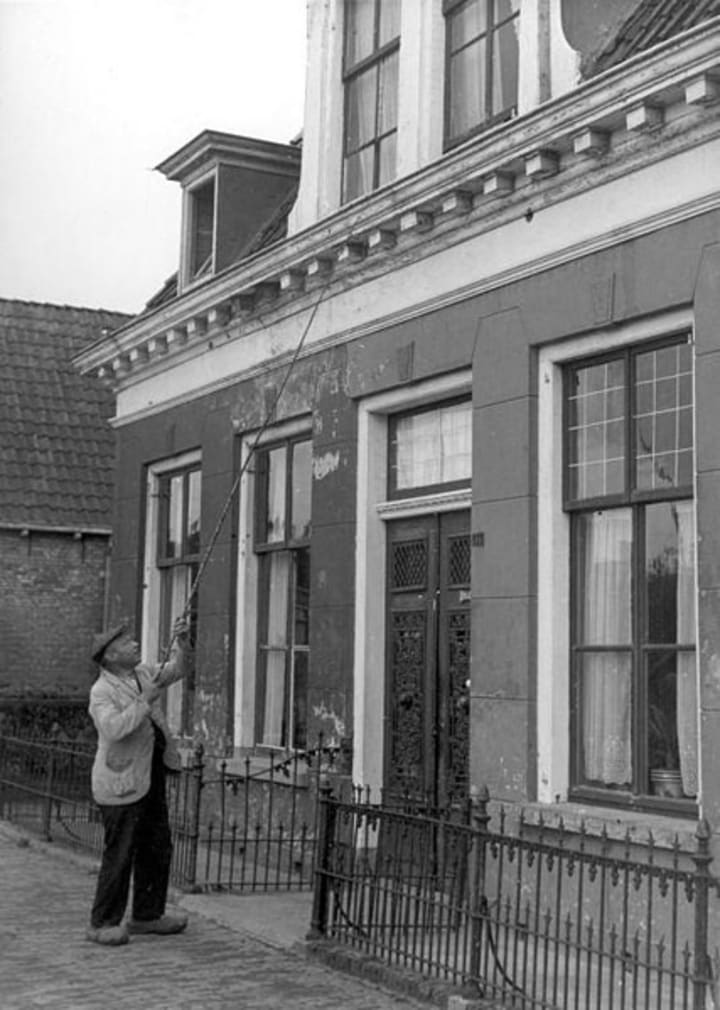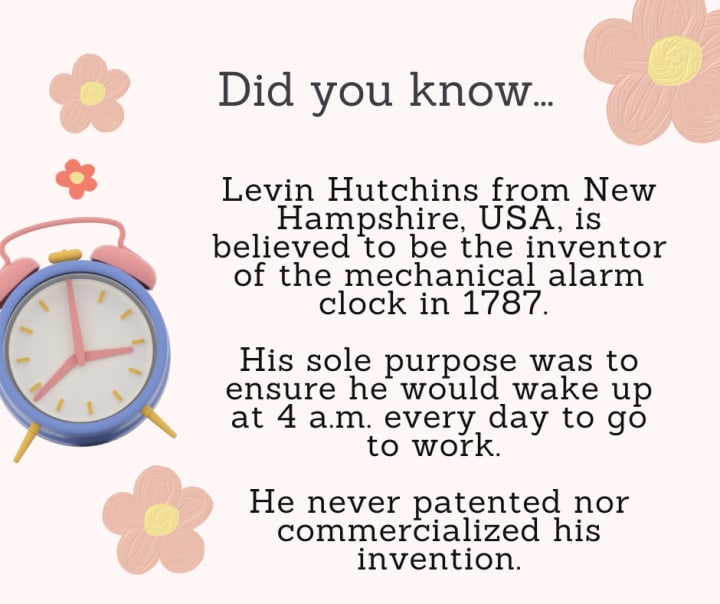How Did People Wake Up Before Alarm Clocks?
From Knocker-uppers to over-drinking

Each of us has a unique love-hate relationship with the alarm clock. Whether you use your phone or have an actual alarm clock, one cannot deny the value they bring to our sleepy lives.
But what did people do before the alarm clock was invented?
OVERDRINKING
Have you ever gotten up before your alarm went off because you had to use the bathroom?
You didn't know it then, but your bladder acted as your alarm clock!
The custom of "overdrinking" before bed was an effective means of waking up promptly each morning. Native Americans utilized such practices until well into the 20th century.
The Native Americans, and others who followed the practice, would habitually guzzle many glasses of water, or another liquid, before turning in for the night. That way, they'd have to get up and go to the bathroom first thing in the morning.
Fun fact: France once tried simplifying time by using a decimal clock, in which there were only 10 hours in a day.
Of course, one had to strike a balance between drinking too little and too much. If you didn't drink enough liquid, you would not wake up on time. On the other hand, if you have too much to drink, you may awaken in the middle of the night with a full bladder.
THE KNOCKER-UP
Knocker-uppers were responsible for waking people up, especially in mill towns, in England and Ireland, from the 1760s until the invention of affordable alarm clocks during the 1950s.
During the height of the Industrial Revolution, the job of the Knocker-upper rose in popularity. This individual would utilise a long stick with wire or a knob affixed to the end to rouse consumers at a specific time. Customers would either verbally agree in advance or post a preferred time on any doors or windows in the establishment.

At a time before alarm clocks, customers slumber peacefully, knowing that for a few pennies per week, their Knocker-upper would not leave until they were convinced that a person was awake.
Many Knocker-uppers were hired by individuals, with larger factories and mills typically having their own team of Knocker-uppers who ensured that their employees arrived at work on time.
The Knocker-uppers employed by factories and mills were typically older workers who had retired after being deemed no longer fit to work factory jobs.
While the role of the Knocker-upper originated in Britain, jobs with very similar duties started popping up all over Europe in the 1800s. In French cities, they were referred to as "reveilleurs," while in the towns of Italy, they were called "hooters." The French reveilleurs and Italian hooters used loud whistles to wake their clients. Still, the British used more subtle ways of waking people, such as tapping on windows, which allowed them to awaken their clients without annoying their neighbours.
By the 1940s and 1950s, the role of the Knocker-uppers had all but died out due to the widespread availability of electricity and cheap alarm clocks.

CHURCH BELLS
During the early Christian era, towns and villages of all sizes and shapes had churches at their centers.
In the morning, churchgoers were roused to prayer by the tolling of church bells. And you can count on a set of ringing bells to get you out of bed and on your way in no time.
In addition, bells were rung to signal the start and end of the workday or to mark the passage of time at other significant points during the day.
This isn't something exclusive to Christians, either. Numerous religions, such as Islam, use auditory tones and prayers to mark the beginning of the day.
About the Creator
Chelsea Rose
I never met a problem I couldn't make worst.






Comments (1)
I have always wondered this but never done the research! Thanks for sharing!